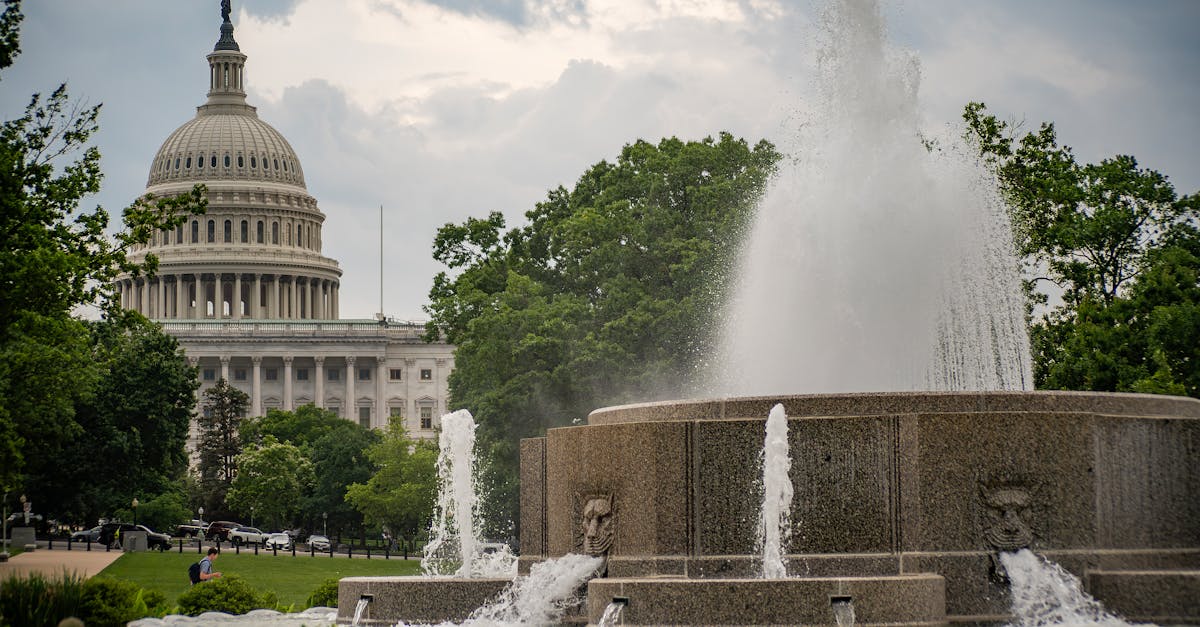Physical Address
304 North Cardinal St.
Dorchester Center, MA 02124
Physical Address
304 North Cardinal St.
Dorchester Center, MA 02124


Washington D.C., November 21, 2025 — In a surprising judicial turn, the U.S. Federal Court has ordered the Trump administration to halt what it termed as an ‘unlawful’ deployment of the National Guard in Washington D.C. This ruling could have significant implications for the balance of power between state and federal authorities.
Amid ongoing political tensions, the Trump administration redeployed National Guard units to Washington D.C. in response to rumored unrest tied to upcoming demonstrations. However, this federal action met with swift judicial intervention. The court’s ruling emphasizes that such deployments violated standing protocols by bypassing the necessary approvals from state authorities.
The controversy stems from a directive reportedly issued by senior figures in the administration earlier this month. This deployment was ostensibly aimed at safeguarding federal properties and maintaining order, but critics argue it overstepped constitutional bounds. The immediate legal action was prompted by a coalition of civil rights groups and local municipalities who contended that the move infringed on state rights and escalated tensions rather than mitigated them.
The decision is significant for several reasons. Primarily, it underscores the ongoing conflict between federal and state jurisdictions under the Trump administration’s approach to domestic security. This ruling could set a precedent impacting how future administrations handle civil disturbances.
Moreover, this development could influence public perception, potentially deepening societal divides. For protesters and civil rights advocates, the court’s decision is seen as a victory, affirming the importance of checks and balances. Conversely, those in favor of strong federal intervention may perceive this as a barrier to ensuring national security.
The ruling has sparked heated discussions across social media platforms. On Twitter, hashtags such as #GuardTakeback and #ConstitutionalVictory have gained traction. A prominent tweet by civil rights attorney @JusticeForAll read, “Today’s ruling reaffirms that no administration is above the Constitution. Proud to stand with those who fight for our rights. #ConstitutionalVictory.”
In contrast, some Reddit threads, particularly those aligned with more conservative viewpoints, argue this ruling hampers the government’s ability to protect its citizens. User PatriotGuard22 commented, “What happens when chaos erupts and we’re left without federal protection? This ruling is shortsighted.”
Legal experts are dissecting the implications of this decision. Professor Laura Benton, a constitutional law scholar at Georgetown University, argues that this case will become a cornerstone reference for future litigation on state versus federal rights. “The federal court’s order sends a clear message: Any deployment of military force within domestic borders must comply with constitutional guidelines, reinforcing the necessity of dialogue and approval from state entities,” she noted.
Meanwhile, political analysts are considering how this might affect Trump’s ongoing influence and the broader political landscape. According to political strategist Marcus Hayes, “This ruling could embolden states to take a firmer stand against federal overreach, creating a ripple effect that might even touch upcoming election policies. The repercussions will be felt not just in D.C., but in every state capital.”
The economic impact is also being discussed. Security analyst Dana Liszkowski suggests potential market reactions, noting, “Investors could interpret this as a destabilizing factor, leading to volatility in markets sensitive to political instability. However, the reaffirmation of legal checks could reassure long-term investors dedicated to upholding democratic institutions.”
The immediate outcome will involve monitoring the federal administration’s response. Should the Trump administration challenge the ruling, the case may propel into an appellate court, possibly reaching the Supreme Court, setting the stage for a deeper legal confrontation.
On the ground, security measures in Washington D.C. may undergo revision, with local law enforcement agencies potentially resuming primary responsibilities, supported by federal oversight if deemed essential. Political campaigns and civil movements will likely leverage this ruling in their rhetoric, either as a cautionary tale or a rallying cry for their respective causes.
This order curtailing the National Guard deployment highlights the ever-present tension between maintaining security and protecting constitutional freedoms. As the nation watches, the court’s decision stands as a reminder of the complex interplay between governance levels. November 21, 2025, may indeed be marked as a pivotal moment wherein legal frameworks reclaimed their foundational role in the governance of domestic affairs.